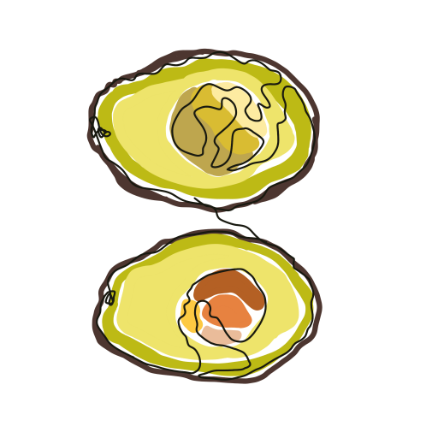 Blogs
Blogs
Food to Improve Mood
By Christine Busuttil




In recent years it has become more and more apparent that what you eat doesn’t only affect your waistline. A number of studies have shown the multi-facilitated affect nutrition has on many aspects of an individual’s life and health. Nutrition has been shown to not only play an important role in blood glucose control and cardiovascular health but changing your diet can also help tamp down depression and boost mood.
A randomized controlled trial found that symptoms of depression dropped significantly when the participants followed a Mediterranean-style pattern of eating. The Mediterranean diet in a number of robust studies has been shown to be beneficial for a multitude of health issues, from chronic illness to mental health.
Therefore, seeing we live in the middle of the Med it may appear we have it made. Unfortunately, this is not the case for many, as our diet has seen a shift towards more processed food and away from the traditional, possibly so as to accommodate our hectic modern lifestyles.
Could there be a link between this hectic life we lead, the resultant poorer diet, and an increase in noticeable mental health issues? And if that is the case, what can we do to counter act this trend? What should be eating to feed our brains, and boost our happy hormones, namely serotonin, dopamine and norepinephrine. Is there truly a way to treat depression and anxiety through food? A number of studies suggest that this may in fact be achievable!
- Increasing fruits and vegetables in your diet is a first step. Fruits and vegetables are loaded with antioxidants and phytochemicals, which help reduce inflammation in brain cells, as well as reducing damage and restoring balance. The phytochemical quercetin found in apples, kale, berries, grapes, onion and green tea, is thought to be a natural antidepressant. Quercetin has been shown to increase the amount of norepinephrine, dopamine and serotonin in the brain which are known to control mood. We should aim to eat two portions of fruit daily and approximately 7 ½ -1 cup servings of vegetables per day. As a general rule I like to recommend half a plate of veggies at lunch and dinner, with the inclusion of some more vegetables at each snack.
- Decrease intake of animal protein. Animal protein is high in arachidonic acid a fat found in animals. Arachidonic acid causes a number of chemical reactions in the body which leads to increased inflammation in the blood steam. When inflammation reaches the brain feelings of anxiety, stress, hopelessness and depression emerge. Lowering intake of animal products and opting for vegetarian protein a few times a week has shown to yield positive results. Try including more beans, lentils and organic soya products as an alternative to animal protein. When eating animal protein focus on lean cuts of meat, poultry and eggs.
- Increase consumption of Omega-3 fatty acids, in other words fish oils. Back in the day when my mother and father were in school, fish oils were regularly handed out to children at school in the mornings, however this practice seems to have unfortunately died out in the generations that followed. Omega-3 is thought to be involved in the functioning of serotonin and it can be obtained from fatty fish like salmon, mackerel, fresh tuna, sardines and herring, as well as walnuts, chia seeds and flaxseeds for a rich plant-based option. It has been suggested that PUFAs, especially DHA found in omega-3, may decrease the development of depression and that diets lacking omega-3 PUFAs lead to disturbances in neural function. For those suffering from mood disorders 2-3 portions of fatty fish per week may prove to be beneficial. Fish oil has also been known to have an anti-inflammatory effect. If opting for a plant based alternative, approximately 40g of walnut or 1 Tbsp of chia or flaxseeds provides a sufficient daily amount of omega-3.
- Another important molecule in the production of serotonin, and therefore important for boosting mood and overall wellbeing is the amino-acid Tryptophan. Excellent sources of tryptophan include pumpkin, sunflower seeds, soybeans, leafy greens, broccoli, mushrooms, peas and turkey.
- Increasing dietary fiber feeds the good bacteria in the gut. This promotes diversity in the gut flora which several studies have shown to have a positive influence on mood and depression. This can be increased through the consumption of wholegrains such as barley, oats, quinoa and wholegrain rice, as well as fruit and vegetables. The inclusion of lentils and beans, both fiber powerhouses. Should also be considered essential in the individual’s daily diet
- Including olive oil, one of the main components of the Mediterranean diet, has shown to have an anti-inflammatory effect due to its high polyunsaturated fat content. Despite our culture’s “fear of fat”, a significant amount of research has come to show that this is unjustified. Fats are as essential to our wellbeing as other nutrients. A recommended daily dose of three tablespoons of olive oil has shown to contribute to improvements in those suffering from cardiovascular disease. Polyunsaturated fats and their anti-inflammatory effects are thought to have an equally beneficial impact on the nervous system, and therefore are also helpful in the management of a variety of mood disorders
- Avoid sugar, caffeine, alcohol and refined grains. The overconsumption of sugar and refined carbohydrates causes imbalences in insulin and blood sugar levels, as well as drains the body of B vitamins needed to sustain your good mood. So while it can be initially satisfying to grab that sugary, carby snack you have been craving, it actually can be your worst enemy in the long run. Alcohol in itself is a depressant, making it counterintuitive to “drink your troubles away”. It can also have a negative impact to overall brain function, which can exasperate the long-term effects of depression. Caffeine being a stimulant can trigger symptoms associated with depression, such as anxiety and restlessness, due to its natural effect on the body. It can also disrupt important neurotransmitters such as dopamine, which are already lacking in those suffering from depression and so is also best avoided.
Overall it is always a good idea to stick to a wholefoods diet free of preservatives and additives and incorporating a variety of different foods and colours at every meal. One excellent way of achieving this goal, is trying, as much as possible, to incorporate the “Farm to Fork” approach which involves shopping locally, seasonally and sustainably with products being in their most natural form.
